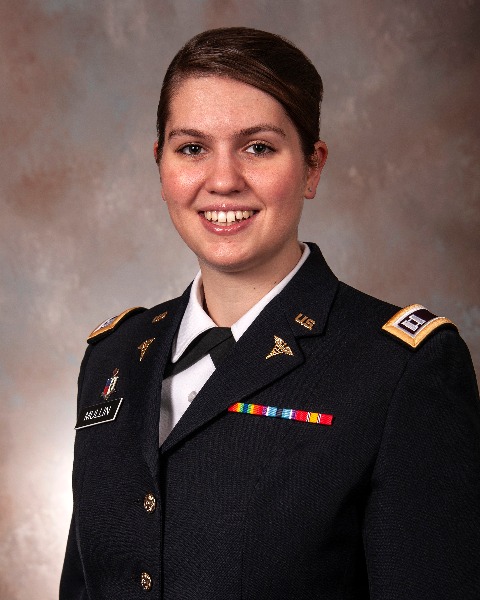Neonatal-Perinatal Health Care Delivery: Practices and Procedures
Neonatal-Perinatal Health Care Delivery 1: Practices: Antenatal Consultation, Substance Use, Potpourri
720 - Evaluating information conveyed by neonatologists in mock antenatal consultations for mothers facing extremely preterm delivery
Publication Number: 720.244

Kaitlyn T. Mullin, MD (she/her/hers)
Resident Physician
Brooke Army Medical Center
San Antonio, Texas, United States
Presenting Author(s)
Background:
When concerned that an infant may be born extremely premature, neonatologists and obstetric specialists work with parents to determine what, if any, resuscitative measures they desire for their child. These conversations are far from standardized, and research suggests that the information discussed varies by specialty and experience level. We previously reported results from a prototype checklist of information topics gauging inter-rater reliability.
Objective:
To assess information delivered by neonatologists during antenatal consultation for extremely preterm delivery while testing inter-rater reliability of a checklist of information topics.
Design/Methods:
For this prospective observational study, a revised list of information topics was used to evaluate video recordings of 22 neonatologists from 4 U.S. performing an antenatal consultation for a standardized patient facing possible delivery after premature rupture of membranes at 22 weeks. Each consultation was independently reviewed by 5 researchers.
Results:
After revision, the information topic checklist’s correlation coefficient improved to 0.92. The consultant characteristics, duration of consultations, and number of items discussed in consultations are found in Figure 2. The two most frequently discussed information items were survival chances and intubation/mechanical ventilation. Several items were not mentioned by any neonatologists, including maternal mortality and funeral support. See Table 1 for full results, including comparisons to the same topics self-reported by neonatologists and perinatologist in a previously published survey.
Conclusion(s):
Our novel checklist has excellent inter-rater reliability; validity as to whether these topics correlate to parent satisfaction requires further study. Our team has already begun taking steps toward assessing parental satisfaction via a recent survey that focused in on the information items listed on our checklist. Next steps will be aimed at assessing the parental reaction to these same video-recorded mock consultations and comparing their responses to the amount and variety of informational content discussed to improve the quality of antenatal consultations going forward..png)
.png)
.png)
